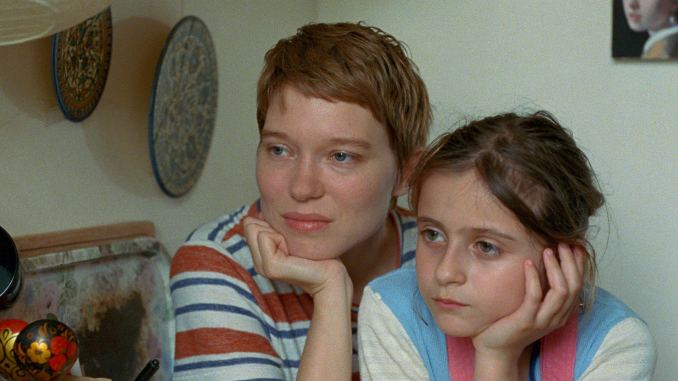Léa Seydoux’s Moody Star Power Bolsters Bleak Drama One Fine Morning

This review originally ran as part of Paste’s New York Film Festival coverage.
Léa Seydoux isn’t the only film actor able to tease desire out of sadness and vice versa, but she may be the reigning champion in the under-40 division. In Mia Hansen-Løve’s One Fine Morning, Seydoux is, like so many of us, further than ever from her ingenue days (even her Bond Girl took a turn for the domestic with last year’s No Time to Die), and her character Sandra is beset with workaday responsibilities. She’s the widowed single mother to preteen daughter Linn (Camille Leban Martins), while also navigating healthcare decisions for her father Georg (Pascal Greggory), who is suffering from a neurodegenerative disorder.
Much of Sandra’s life, then, is divided between various forms of caregiving, and her job as a translator requires full concentration in the moment; as we see in one scene, even a brief rumination for herself can send her work off track. So when she reconnects with her old friend Clément (Melvil Poupand)—whom she originally met through her late partner—there doesn’t seem to be much immediate expectation beyond the opportunity to take a pleasant breather from the rest of her life. Besides, Clément is married, with a child of his own. But the two see each other again, and suddenly fall into a passionate (if possibly ill-advised) affair.
For a little while, Hansen-Løve’s film seems to be exhibiting a different form of Woody Allen influence, after last year’s Bergman Island, which played like a more sophisticated and less solipsistic (if also less funny) cross between Allen’s Bergman obsession and his half-forgotten 2005 dramedy Melinda and Melinda. One Fine Morning dims the bucolic, blue-green tones of Bergman in favor of less elegant, more workmanlike melancholy, as Sandra and Clément figure out the logistics of their affair—a tedious Allen standby in so many of his later films. But—vive la France?—the sneaking around doesn’t last too long, though the situation’s messiness lingers anyway. Meanwhile, Georg moves from one temporary home to another, as his family packs up his old apartment and tries to find the right facility for him to spend his final years.
-

-

-

-

-

-

-

-

-

-

-

-

-

-

-

-

-

-

-

-

-

-

-

-

-

-

-

-

-

-

-

-

-

-

-

-

-

-

-

-








































